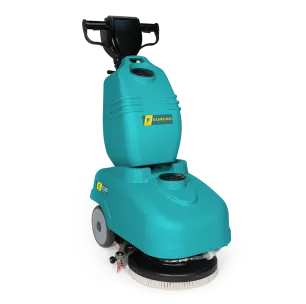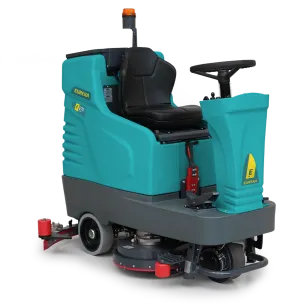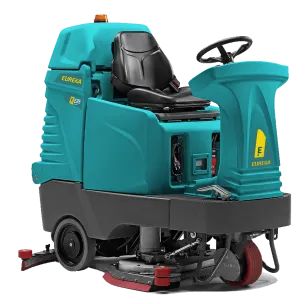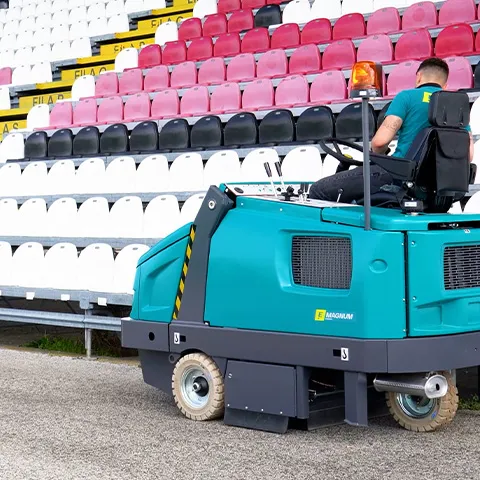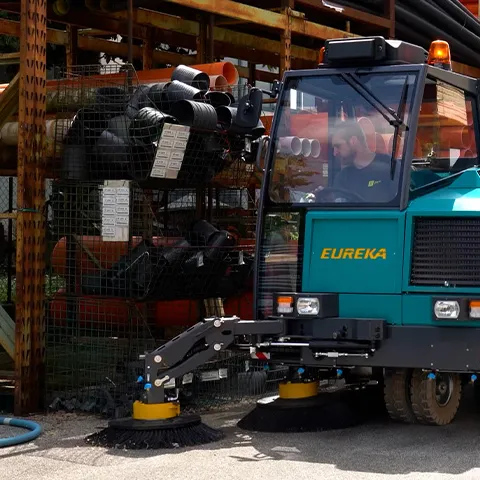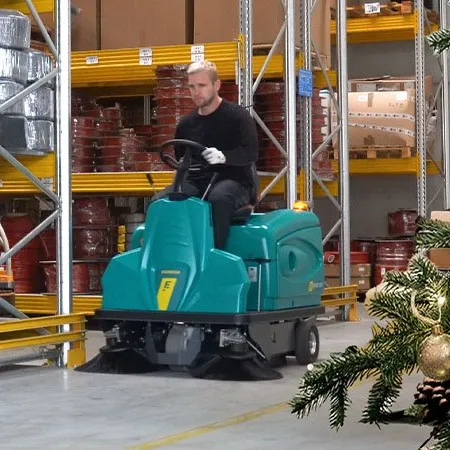WHAT DIFFERENT TYPES OF DUST FILTER ARE USED ON SWEEPERS?
TODAY, THE TYPES OF DUST FILTER MOST COMMONLY INSTALLED ON SWEEPERS ARE:
- Panel filters
- Cartridge or cylindrical filters
- Pocket filters
Filters can be made from paper or synthetic materials, offering different filtration characteristics and different levels of durability and resistance to aggressive agents.
In keeping with our approach to design, at Eureka we believe that to be effective, an industrial sweeper must be safe for the operator, designed for prolonged use, resistant to wear and allow quick, cost-effective and safe maintenance operations.
That is why we exclusively use: Eureka Multipocket filters
The filters on all our battery or engine powered sweepers are specially designed, have a large filtration area, are made of tear-proof and waterproof materials, have been developed to avoid narrow points and are anti-clogging.
Eureka Multipocket filters are designed to capture 99.9% of dust and to offer constant filtration capacity over time.
One of the distinguishing features of our filters is their anti-clog design. This is achieved using pockets that do not have tight corners along with a practical filter-shaker mechanism (automatic on larger machines). This is an extremely important detail, because only when a filter is not clogged and therefore working efficiently can the sweeper ensure complete dust and debris suction.
Since they are made from polyurethane, Multipocket filters withstand contact with water. The accidental aspiration of liquids is therefore not a problem. And since these filters are washable, they can be thoroughly cleaned over and over again without needing to be replaced.
MULTIPOCKET FILTERS VS. OTHER FILTER TYPES
PANEL FILTERS
Panel filters offer a practical design solution. They take up little space, consisting of material folded in an accordion shape. Though compact, they are usually made of paper and are therefore damaged by contact with water – even accidental. For the same reason they are not washable.
In addition, at the folding points the filter surface has very sharp angles. This gives a larger filter surface for the same overall dimensions, but tight folds make it easy for dust to clog the filter, which is then difficult to remove. The efficiency of these filters therefore tends to fall off rapidly in practice, to the point where the filter becomes unserviceable and has to be replaced.
In panel systems, the filter is supported by a rectangular frame made from sheet metal. In addition to ineffective cleaning, this type of filter also has problems with the seal, which tends to separate as a result of motor vibration during use of the sweeper, allowing dust to pass through. Vibration also causes filter frame fatigue, reducing the efficiency of the seal between the filter and the frame. Because panel filters cannot be properly cleaned after use, they are designed to be disposable and have to be replaced often.
CARTRIDGE OR CYLINDRICAL FILTERS
The same applies to cartridge or cylindrical filters, which have similar strengths and weaknesses. The shape of these filters in particular makes them even more difficult to clean. Since the filter material is folded like an accordion, vertically and circularly around a cylindrical cavity, these filters are less able to discharge collected dust. The base of the cartridge consists of a central hole – from which dust should escape – and a flat ring, which supports the folds of the filter material. When the filter is shaken for cleaning, though some of the dust is removed through the central hole, a large amount of it falls vertically, under the force of gravity, onto the support ring at the bottom. This dirt tends to accumulate, especially if moisture is present, forming towers of dirt along each filter fold, and effectively decreasing the filtration surface available.
MULTIPOCKET FILTERS
- EUREKA sweepers are equipped as standard with Multipocket filters which have polyester fabric filtration surfaces offering a filtration rate of 99.9% (class M).
- Because the surface of Eureka filters is smooth, there are no anchoring points for dust, which falls at the slightest vibration. This eliminates the risk of clogging and ensures that optimal suction is maintained over time.
- The filter materials selected by Eureka are tested to class C, Appendix AA, DIN EN 60335-5-69. They have therefore been tested for use with various types of dust, including cement, lime, dolomite, chemical, metallic stearates, resins, glazes, etc.
- The polyester felt is of type T 452 NV and is coated with polyurethane elastomer (a rubber-like material) to offer the following benefits:
- Maximum operating temperature 140 °C.
- Absolute filtration efficiency especially with fine and clogging dusts.
- Captured dust is easily detached during filter cleaning.
- Water-repellent and oil-repellent surface.
- Increased filter life and lower maintenance costs.
- Multipocket filters move during normal sweeper operations, detaching the heaviest dust (filter self-cleaning). A shaker (automatic or manual) provides an additional mechanical action to clean the filter after each use of the sweeper.
